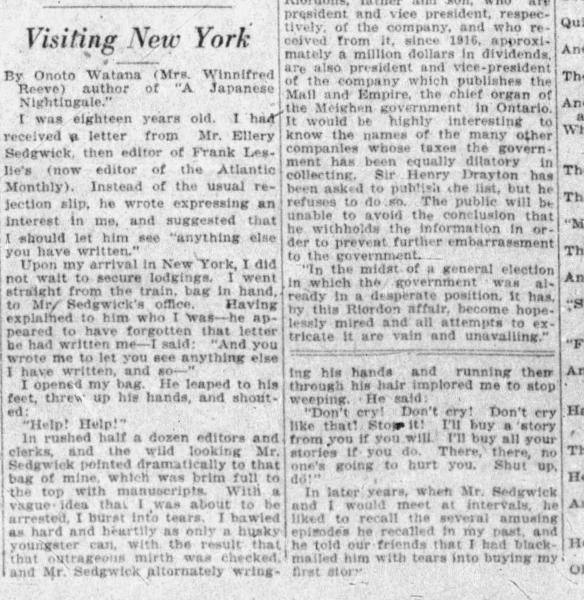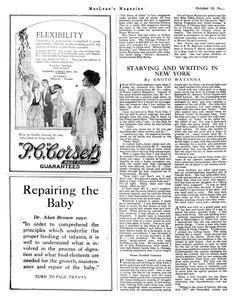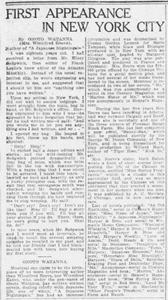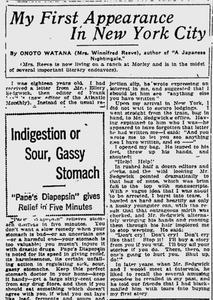I was eighteen years old. I had received a letter from Mr. Ellery Sedgwick, then
editor of Frank Leslie’s (now editor of the Atlantic Monthly). Instead of the usual
rejection slip, he wrote expressing an interest in me, and suggested that I should
let him see “anything else you have written.”
Upon my arrival in New York, I did not wait to secure lodgings. I went straight from
the train, bag in hand, to Mr. Sedgwick’s office. Having explained to him who I
was—he appeared to have forgotten that letter he had written me—I said: “And you
wrote me to let you see anything else I had written, and so…”
I opened my bag. He leaped to his feet, threw up his hands, and shouted:
“Help! Help!”
In rushed half a dozen editors and clerks, and the wild-looking Mr. Sedgwick pointed
dramatically to that bag of mine, which was brim full to the top with manuscripts.
With a vague idea that I was about to be arrested, I burst into tears. I bawled as
hard and heartily as only a husky youngster can, with the result that outrageous
mirth was checked, and Mr. Sedgwick alternately wringing his hands and running them
through his hair implored me to stop weeping. He said:
“Don’t cry! Don’t cry! Don’t cry like that! Stop it! I’ll buy a story from you if
you will. I’ll buy all your stories if you do. There, there, no one’s going to
hurt you. Shut up, do!”
In later years, when Mr. Sedgwick and I would meet at intervals, he liked to recall
the several amusing episodes he recalled in my past, and he told our friends that I
had blackmailed him with tears into buying my first story.




